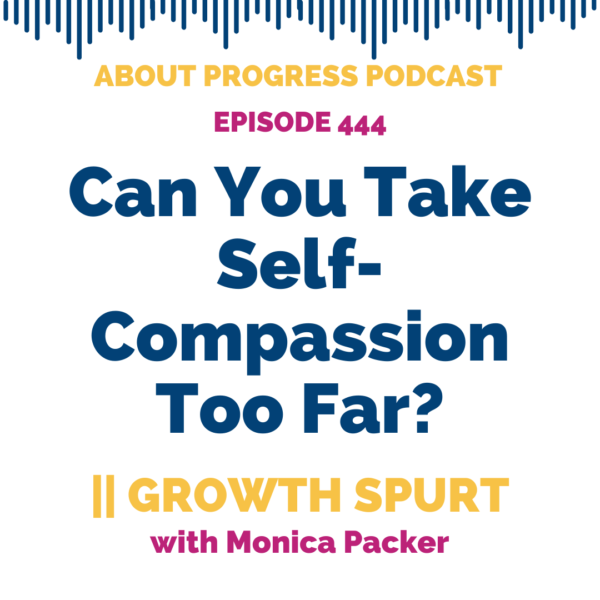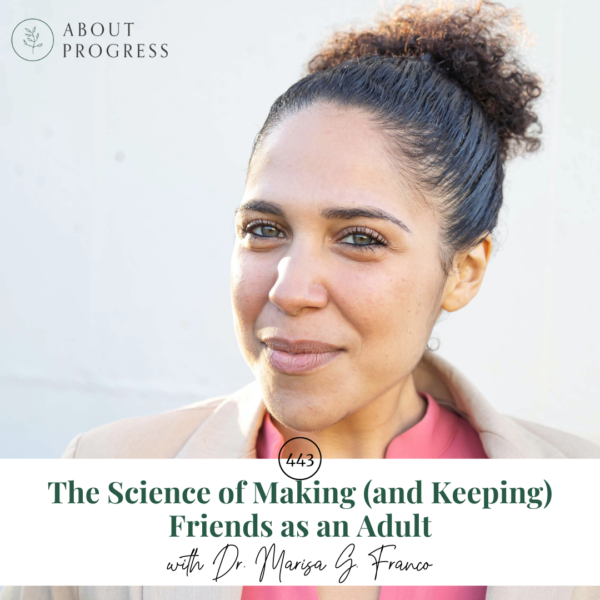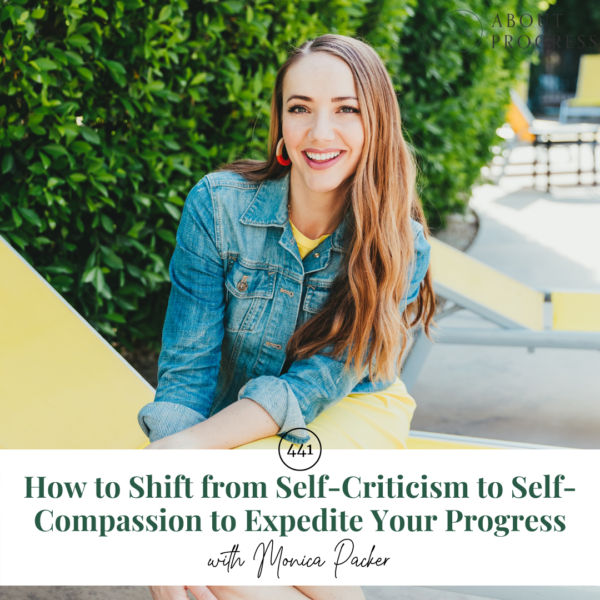Stop putting bandaids on your struggles with these practical, deep self-care practices.
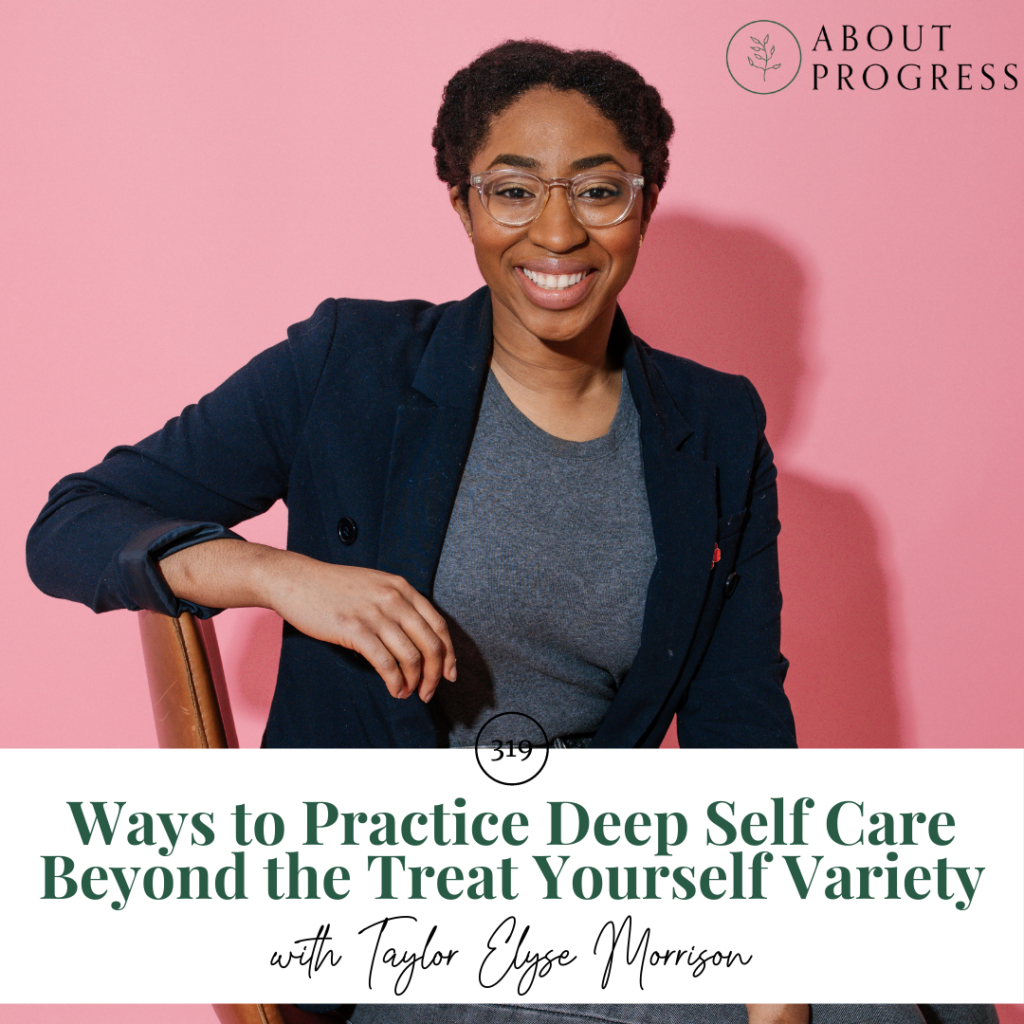
If you’ve been a part of this community for a little while, you already know I’m not opposed to treating yourself, but I am opposed to the idea that it is the same as true self care. Instead of just sticking a bandaid over what can be a real wound, it’s time to learn the ways to practice deep self care, beyond the treat yourself variety.
Podcaster and coach, Taylor Elyse Morrison, is on the show today to share her expertise on self care. She teaches us hard-hitting definitions, as well as the five dimensions you actually need to focus on. Plus, an example of where to start right now when it comes to those areas: physical, energetic, mental, emotional and bliss. You are unique, no one can tell you what your self care looks like, so it’s time to develop your own self expertise to be your strongest self in any situation.
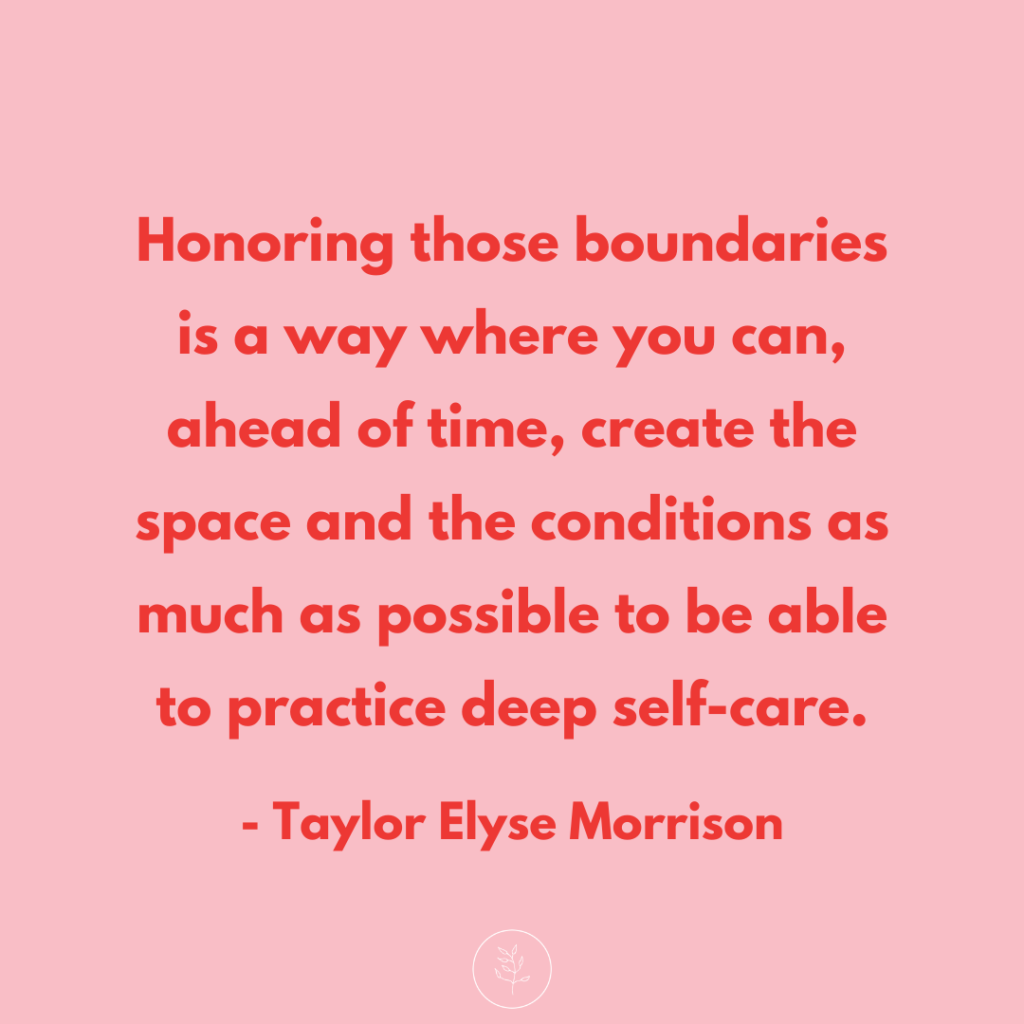

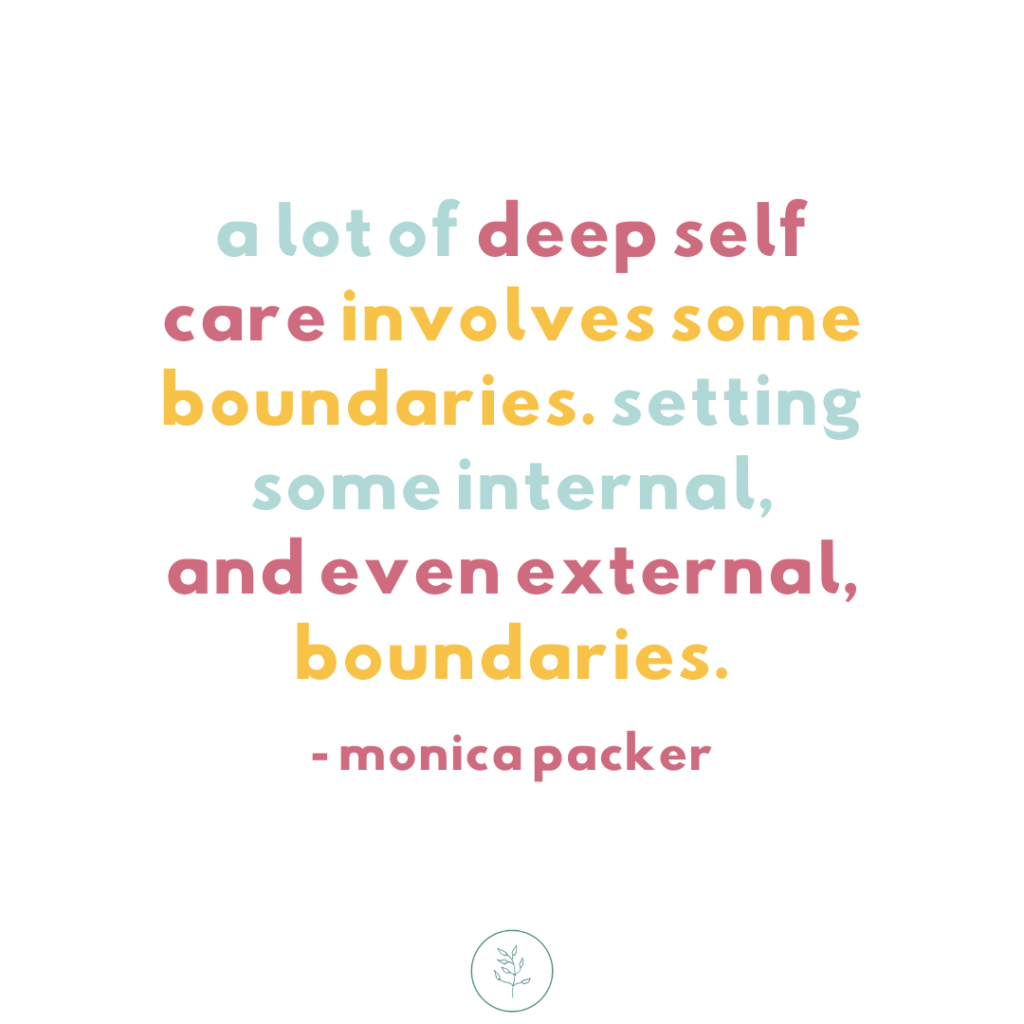
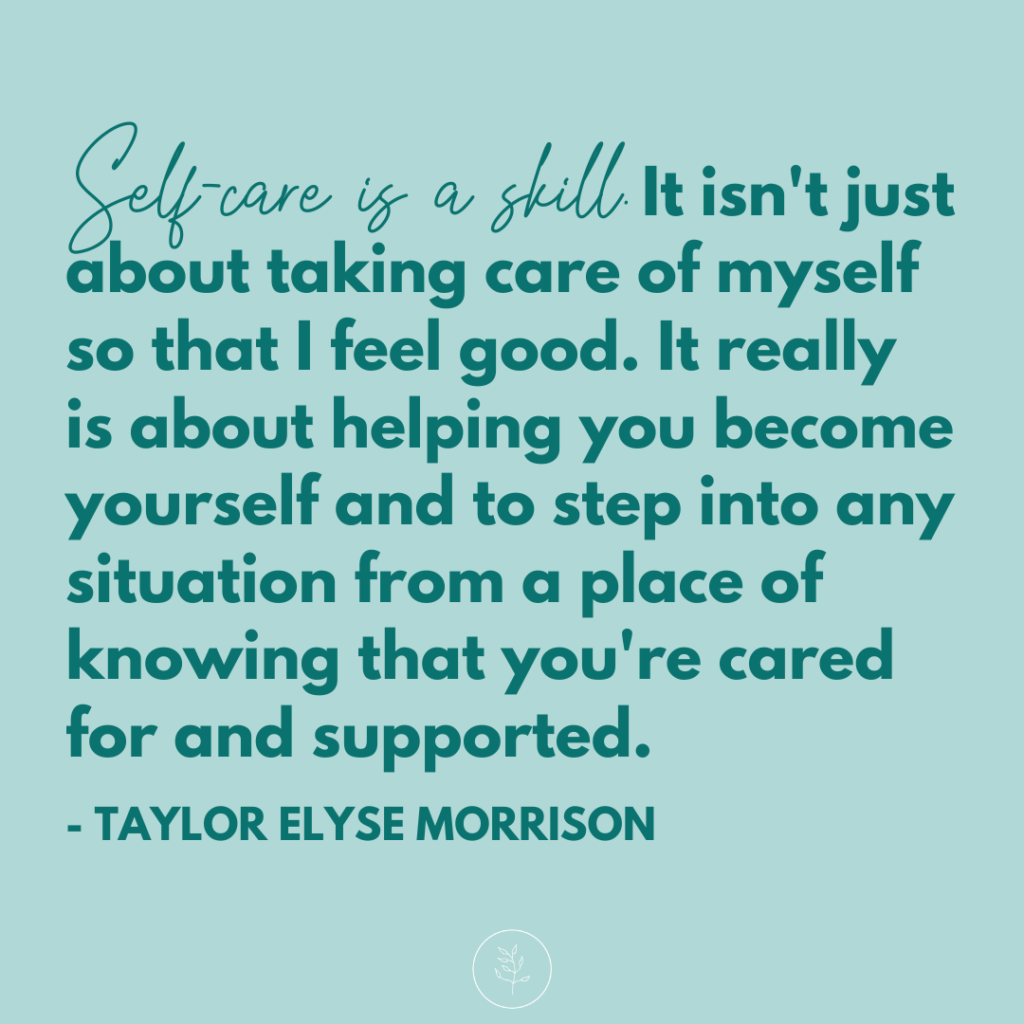
About a few other things…
Can you help me out really quickly? Take this 3-5 minute survey that let’s me know how to better serve you, the women of this community. I’ll select 5 participants to receive a thank you gift!
Sign up for the Go Getter Newsletter to get Progress Pointers in your inbox every Thursday.
You can listen the episode below, or on Apple Podcasts/iTunes, Spotify, Youtube, Overcast, Stitcher, Pocketcasts, or search for “About Progress” wherever you get your podcasts. If you like the show please share it, subscribe, and leave a review!!
SHOW NOTES
Taylor’s Instagram, Website, Podcast
Take this quick survey to help me improve the podcast!
Get started on belonging to yourself with this free resource
Visit &Collar and get free shipping with code ‘PROGRESS’
Get the Organization Overhaul audio course
Join the monthly membership group
Get your first month+ FREE with Libsyn using code MONICA
Lend your voice and experience + be featured on the show HERE
Join Monica on Facebook and Instagram
Songs Credit: DRIVE by Dj Nicolai Heidlas @nicolai-heidlas Music provided by FREE MUSIC FOR VLOGS AND VIDEOS bit.ly/freemusicforvlogs
TRANSCRIPT
Monica: [00:00:00] Welcome to the show Taylor. It’s nice to have you on About Progress.
Taylor: [00:00:04] Thank you for having me, Monica, I’ve been looking forward to this.
Monica: [00:00:07] Well, I have loved learning from you. I found you through one of my internet friends named Corinne Pugmire, so shout out to her. She shared one of your episodes and it came at a really good time for me just when I needed it.
Because you have such a magnificent talent for helping us get centered and cute into what really matters in our lives and how to care for ourselves deeply so that we can show up the way we need to in the world. You have a fantastic podcast as well. Tell us a little bit about that before we dig into the material today.
Taylor: [00:00:37] Yeah. I have a podcast called Be School, B E school, and really it started as an experiment. I knew that I wanted to. Become more confident, collaborate more and build the muscle of consistency. And so a podcast seemed like a really good way to do that. And so in 2019, I did an episode every weekday of 2019.
I still don’t know how I did that. I really don’t know. And it’s a lot about personal development. We talk about unlearning and learning and growth and not just personal development so that we are the benefactors, but personal development so that we’re creating the world that we want to live in.
Monica: [00:01:23] We were just talking about that very thing off the air, you know, how it might seem trite to be talking about personal development during these times, but I really don’t think it is if you zoom out to the bigger picture, because how else can the world be better? If people aren’t better, especially women who we talk to today.
Taylor you are here because I asked you specifically to talk about self care. You, you talk about many things as we already mentioned, but one of the themes I see running throughout your work is, is just. Taking the time and space to deeply care for yourself. Now any person out there who has watched Parks and Recreation.
That amazing TV show knows that there’s a scene where it’s about treat yourself and they just do like everything. Treat yourself. It’s hilarious. I’ll just have to link to it in the show notes. But the reason I bring that up is because I think that’s what self-care has become sometimes. There’s nothing wrong with shopping or like getting a pedicure or something like that.
But, that’s just one level of self care and there’s a deeper level too, and both are good, but we’re going to try to help the women today get into some deeper self care. So let’s hear from you first though. What do you think qualifies as deep self-care and why does that matter?
Taylor: [00:02:33] I’m so glad that you brought this up because normally I’m having to bring it up and say, “Hey, this is what I mean when I’m talking about self care,” because it has become these really surface level things.
And not that there’s anything wrong with treating yourself, but when we want to get to a place where we’re not just cared for, but nourished, you got to get below the surface. So whenever I talk about self care, I’m talking about listening within and responding in the most loving way possible.
What I love about that definition is that by nature, it is something that is dynamic because your environment’s changing. I think we’re all pretty aware of how quickly our worlds can change. We’ve seen that over the past several months and you’re changing as well. So when you are constantly asking, okay, what’s going on inside right now?
And what is the most loving response I could have to it? That’s how you start to really deepen your self-care. And I think that matters because so often we are doing whatever’s trendy. Doing the face mask, doing the bubble bath and telling ourselves, Oh, okay. I’ve cared for myself. But if you haven’t had that check-in moment, you might just be putting a bandaid on it.
Another thing that we talk about in the work that I do is the five dimensions of well-being. And what I see is that a lot of time we are focusing our self-care just on our physical self. So that’s those baths, those massages working out those types of things, but there are so many other aspects of ourselves.
We talk about the energetic dimension, mental and emotional wisdom, being able to connect to your own self-knowing and bliss, being able to connect to yourself, others and the world around you. And so if you’re only caring for the physical dimension, you’re missing out on the depth, that’s there for you and all those other parts of yourself as well.
So I could go on all day about this, but that’s the meat of it.
Monica: [00:04:40] I’m already writing a ton of notes too. I mean, even just those five dimensions, that’s something I’ve never really thought of phrase that way, but it’s interesting though, you’re talking about, you know, physical is one, so it’s okay to take care of yourself physically, but it is just one.
So there’s, there’s more so what other kind of dimensions you mentioned them, which is great, but what are the dimensions that they should be trying to pick up on a little bit more and paying better attention to when we’re talking about deep self-care.
Taylor: [00:05:05] Yeah. So like you said, the physical is great, but I find that we start there. And a lot of times our approach to the physical dimension too, can just be kind of, this is what I quote unquote, should be doing without asking, is this what works for my body? Is this what works for my body in this season. So that’s the physical dimension. The energetic dimension. When we talk about being connected to your breath, your breath is something that keeps you alive quite literally.
And sometimes you’re breathing in ways that are supporting your well-being. And sometimes there’s really subtle things you might be doing with your breath that’s actually making you more anxious and stressed out. So that’s part of the energetic dimension. And then also looking at how you’re relating to your own energy in every aspect of life. They often will say you will have the same number of hours in a day as Beyonce, but that’s not true because Beyonce has like multiple nannies and a cook and personal trainers and people to do her hair.
So the energy that you can put forward in your life to get done the same task is going to look different for you doing it versus Beyonce doing it and being aware of that is a way to be kind to yourself and also to acknowledge that your energy ebbs and flows day to day, but season to season too.
Monica: [00:06:24] So this, this is where, I mean, we’re going to talk a lot, but one of the things that comes to mind with this dimension for in particular, that energy dimension is a really weird, but awesome way to deeply care for yourself is to have less things on your to-do list. I think it can be that simple. Any other thoughts on that?
Taylor: [00:06:44] No, I completely agree. And it’s funny because we often fool ourselves into thinking that we are better off if we can do more, if we’re more productive, but you said it so beautifully, like sometimes, and often, really, the most caring thing that you can do is say, you know what.
I’m going to give myself a little bit of space here. I don’t have to be crammed in my schedule. So I love that you mentioned that
Monica: [00:07:12] And actually I think about that, Harry kind of treat yourself mentality which again, like I’m, I totally do that from time to time, but when I’m doing it the most like harried and kind of rapid fire, I’m thinking more like online shopping for me. That is more of a signal to me that I’m ignoring some deeper needs, some deeper ways. I need to kind of stop and slow down and pay attention to because that’s more of a sign that I’m not getting taken care of in the ways that I need to. If I notice myself doing that harried kind of treat yourself kind of self-care
Taylor: [00:07:46] And like you were mentioning the online shopping is a way that you might feel good for that moment. And you might have another burst of, “Oh, that feels good” when you, it gets there a week later and you open it up. But if you haven’t asked, “okay, what’s going on beneath the surface? Am I feeling not enough?
And so I bought something that I thought would change me into who I am supposed to be. Am I feeling stressed about something. Is there some anger that’s going on?” And you, if you just totally bypass that you have, like this band-aid self-care and underneath you might have this gaping wound.
Monica: [00:08:25] Yep. So there’s a mask there. We can kind of pay attention to the mask and not like in a, Oh, you dumb person kind of way. Just like, “Okay, I have been on my phone a lot thinking that’s my way of taking a break and I never feel better after, or I did a online shopping binge or whatever it might be. And I can see, I feel yucky still. So instead of guilting myself over this, I’m going to think about what I really am missing, what really needs to be happening inside.”
Taylor: [00:08:51] Yes, yes. To all of that.
Monica: [00:08:53] Great. So what I was thinking is I want to hear your advice on what listeners can do, who are really out of practice. First. I’d love to hear how this has played out in your own life.
Taylor: [00:09:03] So this has been a journey for me . When I started doing self care. So when I’m talking, like when you’re talking about the treat yourself form of self care, that’s where I started. That is what was natural to me. And that’s honestly where a lot of us start, right. For me, I started taking bubble baths.
And it was really nice and it did actually get at some other dimensions, but I didn’t acknowledge that it was at those other dimensions until later on. But as I started to get into the habit of asking, “Okay, Taylor, what are your need in this moment?” And then actually, Feeling free to give it to myself.
That’s when things started shifting. And it’s so funny because you’re, you’re talking about deep self care. There is so much richness and so much depth. It’s a journey I’m never all the way there. So if we would’ve sat down and have this conversation this time, last year, I would have told you the things that I’m doing, the ways that I check in with myself, the tools that I have in my toolkit, like.
If I’m stressed out, I can take deep breaths and I’ve got a really strong journaling practice. And I, I know how I need to move my body at different times of the month to support it. And now fast forward to where we are today. There’s more levels of my ability to listen and respond that I didn’t even know were there.
You mentioned scrolling on your phone a lot. I have completely revamped my relationship to Instagram. I’m only allowed to be on it up to two times a day. I take every weekend off and a full week off. I’m actually just starting my week off of Instagram today. Yeah. It’s been such a beautiful way for me to realize, Oh yeah, there was some numbing going on and there are some great things about being on Instagram, but there’s a lot, that’s not great.
I’m really proud of myself because if I listen and I check in and I feel like I need to take a nap, then I give myself time to take a nap. And before I maybe would have kind of said, okay, well you can just get up and not look at your screen for him five minutes and that’s your loving response. But now I’m able to really, really give myself what I need and the difference is spectacular.
Monica: [00:11:25] It’s coming to my mind that a lot of deep self-care involves some boundaries. Setting some internal and even external boundaries. And I’d love to hear more what you think on that, but also coupled with that, you know, journaling and meditation, or, you know, not going on Instagram and taking a walk, like those kinds of things to me are deeper self-care for sure.
But they also seem like more work, you know, which is why I think we go to the numbing behaviors first, instead of doing something that seemingly takes some work on the outside, but really will have way more. Benefits that are longer lasting and in deeper ways. So let’s, let’s take two fold on this then.
So what are your thoughts on that first, you know, just why it is worth the effort and, and how that can become something that doesn’t require as much effort with time and practice as well as the need to have boundaries.
Taylor: [00:12:19] Yeah. So it’s, I was just talking about this with my team member Deanna yesterday and was saying how a lot of the work we do at Inner Workout around self-care can be such a hard sell because we’re not selling the quick fix.
Like we’re not just selling the surface level. Oh, this feels good. In the moment we’re selling actually doing the work, which on the other side, Like I said, it’s so beneficial. It feels amazing. But when you’re in it, when you’re like, Oh, I really wish I could just see that someone liked my photo or see what’s going on on Instagram.
It doesn’t always feel great. But the reason that it’s worth it is because after a certain point you’re any dimension. But for this instance, we can say your body or your emotions, right. If you don’t address them, if you don’t get to their root, it will start screaming. For some people that’s like extreme fatigue for some people that’s ending up having to go to the hospital because they haven’t listened to what their body has had to say for your emotions.
It can be you stub your toe and all of a sudden you’re sobbing because you didn’t address everything else that was going on. And I kind of see it as either way, you’re going to have to deal with this. You can choose to deal with it in a loving, proactive kind way, or you can wait until there’s those moments of screaming and it’s a high-intensity situation.
And I don’t think any of us intentionally wants to get to that place.
Monica: [00:13:58] Early. On, in my own motherhood, I, I was at that place of being so empty that, you know, I was literally crying over spilled milk, you know, that’s where I was like, okay, something’s wrong. Okay. This is not me. This is not the way I would normally handle this.
If I were, you know, strong and supported in myself. And that can happen for anyone out there. Not just if you have kids who spilled milk, but let’s, let’s figure this out then where can they start? If maybe they’re like me five years ago, where some spilled milk makes them scream at the heavens and nash their teeth, or, you know, like you said, the stubbed toe or something else like that is showing them that there needs to be some deeper work here that will be so beneficial in the long run, which also entails the setting, that boundary stuff.
Where can they, where can they start?
Taylor: [00:14:48] The first place to start, if you are getting in that moment where you’re crying about something, I had this moment yesterday where I was crying and then I realized I’m actually in my luteal phase, in my menstrual cycle. And it’s amplifying anything else that’s going on beneath the surface.
But I was crying over my dinner, not turning out the way that. I wanted it to turn out. And so the first thing that I did is I turned in and I listened and it was like, okay, this is an inordinate amount of time. Motion for dinner, not turning out how I wanted it to turn out. And so I paused and I was thinking, okay, what’s going on?
There were some relational narratives and competence narratives that were coming up for me on, am I a good cook? Do these people think I’m a good cook or not? There was also a sense that I should probably check my menstrual cycles tracker app and see what’s going on. And that’s how I realized, Oh, I’ve shifted into my luteal phase.
So when you can give yourself a moment to pause and say, okay, what’s going on. Talk to yourself, whether that’s talking to yourself out loud, journaling, just having a moment of silence. So whatever is already there can be heard. That is a really great thing to do.
Monica: [00:16:09] Hmm. I love how you phrase that though. So like whatever’s already talking can be heard.
Taylor: [00:16:15] Yeah. Cause it’s there. That’s why you’re crying or lashing out or whatever is going on. And then from there you were talking about the boundaries. There is certainly this interrelatedness between being able to practice deep self-care and setting boundaries. And this was honestly the part that I struggled with and continue to struggle with the most because when I feel like I have my tools and I can fit them into my day, but then if someone wants something of me that is outside of, for whatever reason, it’s crossing a time boundary. Someone is messaging me before or after my work hours or someone’s reaching out to me in a medium. That’s not, when that I haven’t designated as being for work. It’s really easy. Yeah. For me to say, well, they’re here and I want to serve them. And yeah, I created these boundaries so that I could, I have time and space outside of work, but just this one time.
And that’s how you end up in, I have ended up in a place of burnout in the past. And so having clear boundaries and honoring those boundaries, that’s an operative part. The operative word there actually honoring those boundaries is a way where you can ahead of time create the space and the conditions as much as possible to be able to practice deep self-care.
So when you’ve already carved out the time when you’ve already said, Tuesday nights are my night for myself, can you make dinner? Can you do the dishes or can you watch the kids? And you honor that boundary. Then you’ve got this time to yourself all the time. Same with Instagram and the phone. Like I realized I was checking it so much.
That’s hours of my day, potentially that could be directed on me or the people that I care about in my life. But I was choosing to give it to this app that wasn’t giving a lot to me in return. So boundaries can be a way to create time to give yourself even some of the boundaries like being on Instagram last might naturally help with your mental and emotional state, they might even help with some of your physical state. They might help you be able to sleep better. So depending on the nature of your boundaries, it might already help you practice yourself care a little bit better, but if nothing else, it’s giving you that time and space.
So I kind of rambled on that. I love
Monica: [00:18:44] boundaries.
Yeah, I was hanging on to every single word that you said, especially the word practice. You said that a few times, you know, practicing self-care also to me means you’re allowed to not do it right all the time. And you’re allowed to sync back to some numbing behaviors sometimes and realize, Oh, I’m back to not feeling so good when I’m doing this stuff or I’m doing it more often.
And I know what really works for me and it’s journaling and I’ve been avoiding that. So I’m going to practice these boundaries again. I’m going to practice the self care and just like every other muscle it’s going to get stronger with time and easier with time.
Taylor: [00:19:23] Yes. I love that. You called that word out. And this is what you talk about so much around perfectionism. Yes, it is a practice. I’m not always going to do it perfectly, but I can go at this again. I can continue to come back to myself. I’ll always be here to listen. I can still always find a loving response. So just because we do it, quote, unquote wrong once doesn’t mean we can never take care of ourselves ever again.
Monica: [00:19:49] Yeah, that compassion piece. I just love how you even modeled that right there. How you can talk to yourself in that loving way instead of being like, Oh, you dummy, look at you. What you did again. It’s like, no. Okay. Let’s, let’s talk lovingly to ourselves and just look at this with curiosity and, and figure out what needs to happen next.
You have helped a lot a lot of women do this both through your podcast and the community that you’ve created in your coaching as well. So I would love to hear some case studies. I mean, you don’t have to use personal names or anything, but I’d love to hear some examples of women who have taken on this practice of self care and boundaries related to that and how it’s shaped their life for better.
Taylor: [00:20:25] That’s part of the really rewarding piece of getting to do this work is one I’m my own case study. I’m constantly learning about how I can care for myself and learning new things about myself. Which, honestly, it makes life fun to know that you can continue to grow and evolve and change and become more of yourself. In other people, a lot of what I see is this light bulb moment when they learn to listen to themselves and they really start to see, okay, I am actually a unique person. And what foods I put into my body, how I move my body, how I respond to different stimuli is unique to me. And yes, I can learn from other people. I can listen to podcasts and read articles and get advice.
But at the end of the day, I have to listen to myself. It sounds so simple, but we don’t often do it. We often outsource our expertise to other people instead of owning our own self expertise. And so the biggest transformation I see as people being able to say, Oh, I have wisdom within, and I can honor that. And I can act based on that.
Monica: [00:21:42] And that light bulb I’ve seen that too. Just like when women are like, Oh, it’s okay for me to listen to myself for one. And secondly is to, to follow it, to follow my own advice. I don’t think I’ll ever forget how you’ve raised this earlier. Taylor, how you said like something is already talking.
So listen, cause it’s already talking.
Taylor: [00:22:04] And it’s just helping people find that. So I see that for many women in different. Pieces of their life. One of the things that we have at Inner Workout is this thing called the take care assessment. And it’s a 75 question assessment. It measures their wellbeing across the five dimensions.
And occasionally I’ll do take care of touch bases. So we’re talking to people going through their results, and it’s so interesting to see what comes up for them. It’s a self care assessment. But in a recent conversation, we ended up talking about this woman’s job search and how some of the narratives and conversations that she was having around who she was and what she was, or wasn’t comfortable doing was showing up in interviews.
And so it’s cool to see these skills that we’re building. And I really do believe self-care is a skill. It isn’t just about taking care of myself so that I feel good. It really is about helping you become yourself and to step into any situation from a place of knowing that you’re cared for and supported.
And so seeing people, whether it’s them feeling more empowered in their job search or feeling more at home in their body, those different click moments that happen are the things that light me up.
Monica: [00:23:26] Yes. And I keep us going. Right. And, you know, I, I just am thinking, there are probably some women who were like, I’m still confused about what this can actually look like, like behavior wise, what could this look like?
So maybe we can try to just give them just a little list of what deeper self care can look like, and it’s going to be so individual. So let’s throw out some examples. Can you think of any off the top of your head and I can throw in some as well.
Taylor: [00:23:50] Yeah. So I’ll do this based on the five dimensions of well-being. I’ll say one of the dimensions and then I’ll share an example there and feel free to add any of that makes sense for you as well. Okay. So the physical dimension, I’m not as concerned with like how you move your body or what specifically you eat or those things, but I love the transformation when people can start to notice like sensations that are going on in their body and what that might mean for them. So a practice that you might try for deeper self care is getting in the habit of doing a body scan. It could be like, okay, I’m waiting in line.
Huh, I’m just going to scan my body. Sometimes I do this. It’s like when I’m waiting for the microwave, I’ll just stand there. And feel, Oh man, actually my left ankle is feeling a little unstable right now. And the only reason I’m able to have that level of insight is cause I do body scans pretty regularly.
Monica: [00:24:45] Never thought that’s, that’s amazing.
Taylor: [00:24:47] So that’s something that can show up for you . In the energetic dimension, the big one for me I think is just connecting to your breath. Easy things that you can do. Take your shoulders away from your ears. Breathe into your belly, make your exhales longer than your inhales.
That is an easy way to balance out your energy. There’s a lot. I won’t get into all of it, but there’s a lot that’s going on physiologically as well. And you’ll just feel a little bit more in the moment and grounded. When we got into the mental and emotional dimension, this is about kind of what comes into your brain, what you’re watching, reading, thinking about, and then what comes out of your brain and it’s supported by this dimension of, or the sub dimension of sleep, because how much sleep you’ve had is going to affect your cognition and it’s going to affect your emotions and how you’re showing those to other people.
And so a deeper self care practice that you can do is allow yourself to journal in a really uncensored way. Even if you think you hate journaling. And a lot of times for me, the best journaling sessions will happen when I can just say, I feel angry right now. And then I can say, okay, why do I feel angry?
I’m feeling angry because this person said this in an email. Okay. Why did that upset you so much and just have an actual conversation with yourself in your journal? There’s so many sweet insights that can come from that. As we got into the wisdom dimension, this is all about your inner knowing, self knowledge, aligned action.
One an amazing practice that you can do here is to think about what you actually want and be able to state that really well. I want to feel more at home in my body. I want to make this much money in my business. I want a day to feel like this at home, even in the midst of having everyone in our house.
And I think this can be especially poignant for women because a lot of times were taught to suppress our wants. And so when you can connect to your inner knowing and understand, okay, Is there actually something that I want in any given situation and then be able to express that want, even if it’s just to yourself or in your journal, you’re building something really, really beautiful there.
Bonus points. If you actually then act on that thing and take some action. And then the final dimension is bliss, which is about connection to yourself, to your community, and to the people around you. A deeper self-care practice for here is to allow yourself to truly be connected in a moment. And an example that comes to mind is like, I pretty regularly pet my dog.
He’s a cute dog. I cuddle with him all the time, but often he commutes with me when I’m driving. So sometimes I’ll pet him like in between stoplights or I’m scrolling, I’m reading something on my phone. I realized I’m very rarely in the moment with my dog. What would it look like to just be completely present with my dog?
I’ve done this a lot more often, and it’s super fun to play with him and see the things that amuse him or scare him. I don’t have kids. I would imagine it’s only like a million times better with actual humans instead of a dog, but asking yourself, what would it look like to be connected in this moment and then choose to fully connect.
And again, this can be a connection to yourself too. It doesn’t just have to be a connection to something else. So those are some really practical, deep self-care practices. And as you start to do them, I would guess that you’ll start to come up with your own practices because all of these are about getting you in conversation with yourself.
And once that conversation starts, then you’ll hear, “Oh, I wonder what it would be like to do this,” or “I would feel really supported if I did that.” And there you go. You’re off on your self care journey. I
Monica: [00:29:06] adore it. Those were incredible. I thank you for walking us through those five dimensions and wasted, practically, you know, support those.
I, I was singing for myself, some things that come to mind as a joyful movement, you know, moving my body. Without the shoulds in mind, if, whether that’s just a walk or a hike of the mountains or dancing around a room or like, or a hard workout. Cause sometimes it can be that, but because it’s serving a purpose . Meditation, stillness, creative work is a big thing for me, even baking.
You know, that’s a really deep way. Caring for myself sometimes is doing a challenging recipe from the British Baking Show. I don’t know why, but it just helps me get more to what really is going on. I’m really, really grateful that you were on the show today and that you are living this out in such beautiful ways.
I always ask my guests this last question, Taylor, and it’s because we’re a personal development show. So we’re always working on ourselves in one way or another. You talked about working on Instagram earlier. What else are you trying to cultivate in your life. Personal development wise right now.
Taylor: [00:30:04] Yeah, I’m working on being the beginner. That’s the big thing for me. I have recently gotten into playing chess and cause yes, I did watch the Queen’s Gambit and I played it as a kid really casually. And so I’ve been doing that more and I’m not particularly good, but I’m in a chess camp right now and it’s just been a lot of fun to do something that’s not at all related to work and see myself improve and be challenged at it.
Monica: [00:30:34] Oh, I adore it. And that’s a whole other level too, of, of caring for yourself that maybe that sounds more, I, you know, I think fun stuff is great too. We talk about that in our community. A lot about how it doesn’t have to be deep all the time too, but that’s still a nice way of doing it without the numbing behavior.
So, I adore what you said so much. Let’s point people in the right direction, where should they go find you?
Taylor: [00:30:57] Yeah, you can find me on Instagram, even though I’m not there as much at Taylor Elise Morrison and it links to my podcast Be School and to Inner Workout.
Monica: [00:31:08] All that sounds great. Well, I am again, so grateful you took the time. Thank you so much, Taylor.
Taylor: [00:31:14] Thank you, Monica.
